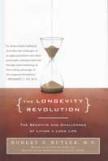Affording Old Age
Robert Butler is the nation’s pioneer in directing attention to the promises and issues raised by aging and the increasing number of older persons in America and the world. Personally, he has been a mentor during the formative stages of my career in academic medicine and geriatrics, and a wonderful example of someone who gives encouragement, direction and shrewd advice while allowing one the opportunity to grow and develop. His new book, The Longevity Revolution, is an impressive synthesis of what is known about aging and the prospects for the future, where throughout much of the world the largest increases in population are occurring in those well over 65. The Longevity Revolution is more than a book about aging: it is a book that takes seriously themes of human solidarity, the dignity of individual lives and the challenges to care across the life span to create opportunities not just for survival but for human flourishing for young and old.
Butler’s experience and knowledge are in ample evidence in this book. The first director of the National Institute of Aging, he also developed and directed the nation’s first Depart-ment of Geriatrics, at Mt. Sinai Medical Center in New York, and, in his prolific work in advocacy and public policy development, coined the term “ageism” in 1968. In 1976, Butler received the Pulitzer Prize for his book Why Survive? Being Old in America.
Most impressive and compelling about Butler’s latest book is its urgent message about caring for all persons and recognizing the dignity and value of all individuals. Behind this message are solid statistics and arguments that an aging population need not be diseased, feeble or parasitic on younger individuals. Indeed, Butler challenges many of the assumptions and downright untruths that keep politicians and policy planners in a state of panic about aging. He urges looking constructively at genuine opportunities instead of fixating on potential perils.
The term ageism means the attitude that growing old is synonymous with decline. It carries with it concomitant conceptions that an aging population is burdensome, problematic, a drain on the nation’s resources, and that individual older people are greedy, demented, feeble and somehow disgusting. Butler argues against this attitude forcefully and with an encyclopedic knowledge of a vast amount of sociological, ethical, medical and basic science research about the potential and promise both for individuals and a society with increased longevity. And he performs an important service in providing valuable facts about Social Security, Medicare and other economic issues that allow reality and reason to counter the fear and inertia that characterize public policy debates regarding aging.
Also invaluable, and part of the attraction of his book, is Butler’s global perspective on aging. The growth of an aging population is not limited to the United States, Western Europe and Japan. This is a worldwide phenomenon, even in a world where lives are threatened by H.I.V./ AIDS, a growing disparity in access to resources of food and water, and the ever-present scourges of war and violence. Butler argues that attention to an aging population re-quires a comprehensive perspective on issues of justice, distribution of resources and basic rights of freedom from coercion and exploitation. Indeed, for all those who have a concern about human rights, there must also be attention to the aging of the population worldwide and the potential of increased longevity to provide better lives for all persons.
Butler is thoroughly realistic about the problems of Alzheimer’s disease and other dementia-related illnesses and provides a brief but comprehensive introduction to aging as a biological process, theories as to why we age and the potential for increasing longevity. He is critical of those who peddle ill-conceived and unsubstantiated formulas for life-span extension and recognizes that responsible efforts to increase longevity need to be distinguished from quackery and pseudo-scientific fads. His synthesis of information about Alzheimer’s and his call for a massive effort to find improved treatments and a cure are a critical component of this book and should be required reading. Likewise, I personally welcome, as one of the pitifully few academically trained geriatricians in the United States, Butler’s attention to the low level of funding, interest and support for the development, training and encouragement of this medical specialty. Why is care for the elderly in the United States so uneven and sometimes lacking in basic knowledge? Because aging does not receive the attention it desperately needs in the medical school curriculum, in post-graduate training of young physicians or in reimbursement for the care of older persons.
The Longevity Revolution, if read by public leaders, could influence positively public policy not just about older persons, but about everyone. It is a wonderful burst of reason where so many seem to prefer to lament that the sky is falling because of an aging population. Is this book perfect? No. It has some repetitions and I don’t always agree with Dr. Butler’s point of view, especially on the subjects of population and reproductive planning and the potential for embryonic stem cell research. What I do admire in this book, and have always admired in Dr. Butler, is his respect for different opinions and his willingness to highlight the importance of spiritual growth as part of the need for all humans as they grow and age. Although filled with facts, figures, policy recommendations and scientific theories, the book is very much worth the effort to read.
Living in a world where aging is a global phenomenon, you would be well advised to read this volume. In fact, buy two copies and send one to your representative in Congress.
This article also appeared in print, under the headline “Affording Old Age,” in the June 9, 2008, issue.








